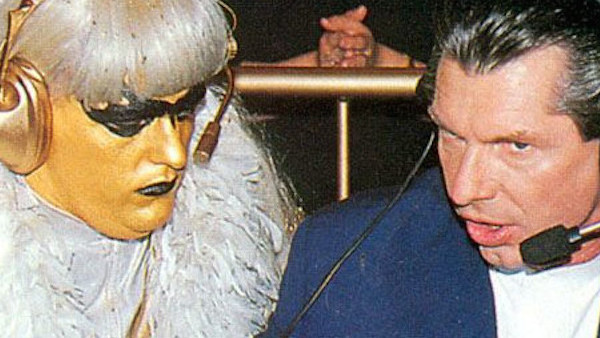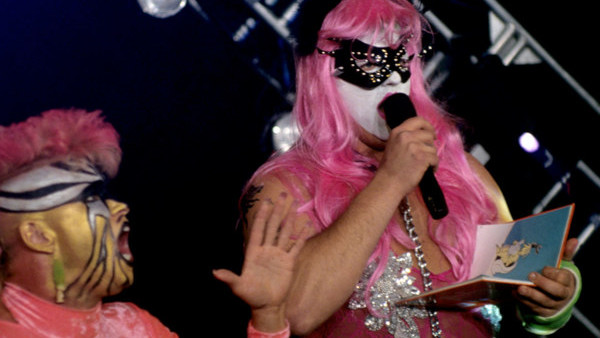Golden Touch: How Dustin Runnels Crafted A Glittering THIRTY YEAR Wrestling Career

Debuting with WCW in 1988, the babyfaced babyface Dustin Rhodes did the rounds in the Southern states and Japan before migrating to WWE in late-1990 to contribute to his father's final angle with Vince McMahon. Cursed by 'The American Dream's impending exit, the Rhodes pair were merely moving wallpaper for the Ted Dibiase/Virgil split during Dustin's first and Dusty's last pay-per-view appearance, at January 1991's Royal Rumble. A move 'home' put both in plum spots either side of the curtain, with Dustin's continued presence almost certainly in-part due to Dad's powerful pencil. He kept the spot on talent alone though - Runnels prodigious ability betrayed his youth and relative inexperience. That same nous would be tested when he returned North after things turned fractious with both WCW and Dusty himself.
Not gay, but 'androgynous'. Not gay, but 'bizarre'. Not gay, but 'sexually suggestive'. Goldust's characterisations were carefully manipulated by the company's PR machine between 1995 and 1996 to manage complex fan expectations, but hindsight hasn't cleared waters intentionally thickened with mud. Vince McMahon willingly profiteered from unpleasant gay panic, allowing and potentially encouraging Dustin Runnels to tease homophobia from his braying fanbase, whilst simultaneously asking a question of how a homosexual performer outing himself as straight represented a babyface turn in modern times.
It was a tightrope the company fell from numerous times, but Runnels' character work was sublime all the same. His commitment to the company's hedonistic reimagining of the persona in 1998 was admirable - as was his willingness to literally set fire to the gimmick and bring it back to life during a typically chaotic summer scripted by Vince Russo.

His durability was stubbornly evident on-screen, but real-life trials over the following decade nearly left his dreams completely shattered.
CONT'D...